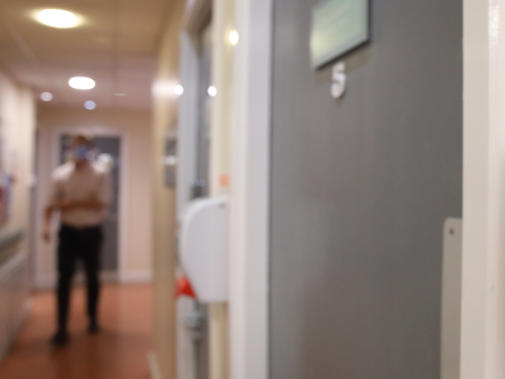The BMA has warned the Government will need to work ‘hand in hand’ with doctors if its 10-year plan for the NHS is to succeed.
Doctors leaders have insisted ‘confidence and buy-in’ from doctors and other healthcare staff will be essential if wide-ranging transformative plans for the NHS in England are to be realised in the next decade.
The warnings comes after prime minister Keir Starmer and health secretary Wes Streeting today unveiled Fit for the future: 10 Year Health Plan for England.
Labelled as a decade-long plan to transform the delivery of healthcare and usher in a ‘brand-new era’ for the NHS, the strategy is set to be structured upon three key principles including the shifting aspects of care services from hospitals to community settings, increasing digitisation of the NHS and adopting a preventive model of healthcare.
Central to the plan is the implementation of a Neighbourhood Health Service in which community-based health centres staffed by multidisciplinary teams, including doctors, will provide a ‘one-stop shop’ approach to delivering care.
Health centres
As well as giving care and treatment that were traditionally delivered in hospital settings such as diagnostics and post-operative care, these centres would also provide access to preventive care services such as smoking cessation and weight management.
Under the terms of the plan, it is understood these health centres would ultimately seek to operate 12 hours a day, six days of the week.
The plan also sets out an extensive vision for change including new operating models, efforts to improve transparency and quality of care, and changes to the workforce and financing of the NHS.
Responding to the plan, BMA council chair Tom Dolphin insisted ‘many questions remained’ about how the proposed ‘neighbourhood health service’ would be staffed and funded, adding that the overall 10-year plan would require ‘significant investment’ if its goals were to be realised.
He further warned the Government would have ‘little hope’ of pushing through its package of reforms to the health service while issues such as doctors’ pay and unemployment remained unresolved.
Cooperation vital
He said: ‘Some of today’s announcements sound impressive, but we need assurance that it’s not a case of rearranging the deckchairs on a sinking ship, when all hands on deck should be repairing the hull.
‘The health secretary insists that this plan has staff’s "fingerprints all over it", but if the Government wants it to be as transformative as it would have everyone believe, then it needs to implement it hand in hand with those of us providing care to patients on the front line every day.
‘While the ambitions around the ‘three shifts’ are all admirable, the confidence and buy-in from doctors and their colleagues working on the ground will decide whether they can be a reality, and done in the way that the Government is proposing.’
He added: ‘For doctors, we’ve been clear that the future of health services and public health in this country relies on their clinical leadership and commitment being valued – financially and culturally.
‘The Government has little hope of pushing through reforms while doctors feel undervalued and fearful for their futures; addressing this in the first instance means fixing pay, contracts and unemployment.’
 DOLPHIN: Long-term, joined up approach needed for staffing
DOLPHIN: Long-term, joined up approach needed for staffing
On the issue of workforce, the plan outlines a determination to prioritise UK medical graduates for foundation and specialty training and to reduce international recruitment to the NHS workforce to less than 10 per cent by 2035.
It also pledges to ‘continue to work with trade unions and employers to maintain, update and reform employment contracts’ and to create 1,000 new specialty training posts in areas of greatest need over the next three years.
Dr Dolphin said: ‘Mr Streeting promised to fix training bottlenecks and fix doctor unemployment. It’s good to see him pledging in writing to give UK medical graduates and those who have worked for some time in the NHS priority for roles, something the BMA has lobbied long and hard for. But at the same time the additional 1,000 specialty training places won’t touch the sides of what’s needed to tackle un- and underemployment once and for all.
‘The plan itself admits that the NHS will have fewer staff in 10 years than the last government promised just two years ago but it’s difficult to see how they’ve come to this conclusion ahead of the workforce plan, expected later this year. This upcoming plan must engage with the workforce it is talking about and must finally take a long-term, joined up approach to medical staffing that has been so historically lacking.
He added: ‘The plan talks a lot of autonomy and empowering frontline staff, but then says there will be name-and-shame league tables, and discusses performance-related pay and overhauling employment contracts – something that cannot be done without real negotiations with unions.’
Digital tools
In vowing to end the status quo of the NHS’s ‘hospital by default’ approach, ministers have promised to roll out new digital tools such as AI to assist doctors with tasks such as notetaking and letter drafting and digital telephony, to free up additional time for patient contact.
The plan will also allegedly see new contracts of service being issued to allow practices to cover a wider geographical area in order to ease the pressure on smaller practices struggling to meet patient needs.
Through its plan, the Government claims that ‘the majority of outpatient care’ will be delivered outside of hospital settings by 2035.
Key ambitions set out in the plan include:
– The expansion of mental health support teams in schools and colleges through ‘young futures hubs’
– The creation of a new genomics population health service including testing of newborns to aid in the early identification and intervention in disease
– Restoring foundation trusts to the health service with a view to making every NHS provider an FT by 2035
– A requirement for all providers to develop ‘robust and realistic’ five-year financial plans aimed at ensuring sustainability
Patient choice
The plan also pledges to increase transparency and empower patient choice including through the creation of publicly accessible league tables ranking healthcare providers against ‘key quality indicators’.
It also makes reference to utilising capacity in the private sector to expand the provision of services in the most disadvantaged areas, and developing a business case for using a PPP (Public Private Partnership) with regards to the proposed neighbourhood health centres.
BMA GPs committee chair Katie Bramall-Stainer said that, while she welcomed the Government’s recognition of the need to shift greater resources to primary care, full details of the plans’ proposals and how these would be funded, needed to be clearly set out.
She further warned that the proposed neighbourhood health centres must not siphon off funding meant for general practice, adding that ‘effective engagement of local GP leadership’ was critical to the plan’s chances of success.
She said: ‘Whilst the Government’s acknowledgment of the need to focus on resourcing primary and community care is welcome, we need to see the detailed plans regarding how this will be delivered with costed investment.
‘Without a commitment to a guaranteed level of investment that protects and builds neighbourhood services embedded in general practice, there risks a serious mismatch between ambition and capacity. We have a burgeoning crisis of unemployed GPs today, so we need rapid solutions to hire those fully trained doctors looking for work now, ahead of expanding numbers tomorrow, lest there be no jobs to go to as practices lack funds to hire them.
‘The creation of neighbourhood health centres must not divert staff or resources from local GP practices and must not come at the cost of ignoring dilapidated general practice estates that are being left to wither.
‘Expanding geographical reach and services will require a modern and sustainable GP contract for decades to come; to help facilitate and expand practice services and to support GPs and their teams who are best placed to conduct the NHS orchestra.’
 BRAMALL-STAINER: Need to know in detail how plan will be delivered
BRAMALL-STAINER: Need to know in detail how plan will be delivered
She added: ‘If the Government is genuinely committed to delivering meaningful transformation of care over the coming decade, then crucial to any effective implementation will be the need to listen and engage with GP leadership to shape and inform the direction of travel.’
The plan builds upon recommendations set out in an independent review of the NHS in England carried out by Lord Ara Darzi in 2024.
In his report, Lord Darzi warned that the NHS had been left ‘chronically weakened by a lack of capital investment’ following the austerity imposed under the coalition government of 2010-15.
He also highlighted the damaging and disruptive effect of the 2012 Health and Social Care Act upon the NHS and the unprecedented pressures imposed by the pandemic.
In response to Lord Darzi’s review, the Department of Health and Social Care alongside NHS England launched a wide-ranging consultation process known as ‘Change NHS’, chaired by former King’s Fund director of policy Sally Warren, in October last year.
The BMA was among the many organisations involved in the consultation process, with the association submitting a comprehensive submission to both the consultation exercise as well as to the second Change NHS survey.

